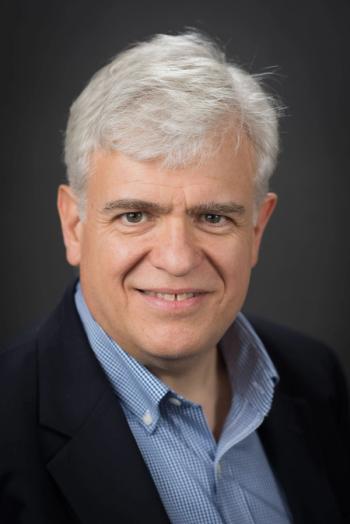
- MHE February 2024
- Volume 34
- Issue 2
Meet the Superstars of Aging: Centenarians
The number of people living to 100 is growing in the U.S. and around the world. Defying the overall trend of older people having more health issues, they are not major users of healthcare.
While working at a senior care facility with several levels of care in the 1990s, Thomas Perls, M.D., M.P.H., wanted to meet with several centenarians in the independent living section. Perls, then a geriatrics fellow at the beginning of his career, had a hard time making arrangements. “They were never around,” he says, and he assumed that they were occupied with medical visits. Perls later realized he was wrong. They were keeping busy with nonmedical activities.
One 102-year-old resident was an accomplished pianist who was giving concerts that included complicated Chopin arrangements. Another was a 101-year-old former tailor spending time in the occupational therapy clinic but not for therapy; he was mending people’s clothes. Or he was spending time with his young (85-year-old) girlfriend.
Perls had an epiphany that maybe there was something special about this group that allowed them to delay or escape aging-related diseases, prompting him to start the New England Centenarian Study (NECS) in 1995, the largest study of its kind in the world. He is the director of the Boston University study and a professor at the university’s medical school.
Centenarians are still the exception, the elite pack in the marathon of old age, but their numbers are growing. In 2021, there were nearly
90,000 centenarians in the U.S., almost double the number two decades prior and close to the time when Perls made it his career to study centenarians and look for reasons for their longevity. As the centenarian population expands, other questions have come up, including ones about healthcare utilizationand costs.
These insights will come in handy as 100 becomes the new 90 or even 85. The Pew Research Center projects that by 2050, there will be 3.7 million centenarians globally, with the U.S. centenarian population in the lead.
The secrets
Life expectancy at birth in the U.S. rose to 77.5 years in 2022, but that was an exception. The Washington Post published a series of articles in 2023 exploring why gains in life expectancy have stagnated and even reversed since about 2010. The newspaper’s reporting identified the growing number of middle-aged people with chronic illness, wealth and income disparity, and childhood obesity as among the reasons.
For older people, the picture is brighter. Before the COVID-19 epidemic, life expectancy for people at the ages of 65 and 75 had been getting longer. As for centenarians, the NECS research supports the “compression of morbidity” theory of James Fries, M.D., a professor at Stanford University in California, who researched healthy aging. Fries, who died at age 83 in 2021, argued that good health can stretch into old age and that the onset of infirmity can be postponed so ill health is squeezed into a relatively short period.
Perls and his NECS study have found that most centenarians aren’t spared from age-related diseases, but researchers found 90% of them function independently at an average age of 93 and they live with their diseases and handle them better than their peers. The study’s researchers say their research has shown that 43% of centenarians are what they call “survivors” who were diagnosed with age-related diseases before the age of 80 and about the same percentage are “delayers” who were diagnosed after 80. “Escapers,” who have no mortality-associated disease, make up the remaining 15%.
Cynthia Petermann, a certified geriatric nurse practitioner at CenterWell Senior Primary Care in Anderson, South Carolina, has taken care of numerous centenarians during her career. She’s noticed that most centenarians have some kind of chronic disease, such as peripheral vascular disease, osteoarthritis or osteoporosis. Generally, however, they do not have more debilitating disorders such as diabetes or chronic obstructive pulmonary disease. And there is nary a smoker. “I’ve never had a centenarian I cared for who has been a smoker or used any kind of tobacco. I thought [that] was interesting,” she says. Her experience aligns with research, with findings from one study showing that 23% of centenarians have no major chronic diseases and 18% have no disability.
Petermann has noticed other commonalities. She has not seen any centenarians who are overweight — most are actually underweight. All her centenarian patients have been active and ambulatory, mostly residing in assisted living. They have all been involved with their communities and have good support there and with their families, an observation that fits with the research that shows a strong association between good health in old age and social networks.
Not expensive
Medicare data analyzed by KFF, formerly known as the Kaiser Family Foundation, found that although Medicare spending per capita increased with age, the spending topped out at the age of 96, gradually declining for those living longer. For noncentenarians, inpatient hospital care was the largest proportion of the spending. For centenarians, the largest proportion of Medicare spending was on hospice care.
Though centenarians live longer than their peers, healthcare costs for this population tend to be lower, Perls observes. “Generally speaking, centenarians should be the least of our worries when it comes to healthcare costs because of two things,” he says: If they get sick, they usually have fewer diseases and are taking fewer medications. And when they get an illness that could be expensive, it’s toward the end of their lives.
“When they have a high mortality-risk disease, they generally don’t choose to go into an ICU [intensive care unit], where care becomes very expensive,” Perls says. Delaying those diseases to relatively short periods of their lives — at the ends of their long lives — means lower treatment costs.
Petermann says that last year, one of her centenarian patients went to the hospital for the first time in five years; the patient had a heart diseaseissue that needed medical attention.
“A lot of people, when they get to that point, don’t want to be connected to any machines, life support or tube feedings.” This is Perls’ experience as well. “Many choose not to go to ICU — they don’t want heroic measures. They have a much more realistic idea about their mortality and their quality of life. Aggressive vascular support is not something they’re interested in,” he says.
As the NECS research matures, Perls is noticing that centenarians’ children “very much follow in the footsteps of their parents. They demonstrate an uncanny ability to age slowly and escape diseases associated with aging.” The Boston University study is now following some of these people as participants as well. “When you want to live much beyond 90, I’d say choosing your parents well or grandparents well becomes more and more important,” Perls says.
Deborah Abrams Kaplan writes about business, insurance and healthcare.
Articles in this issue
about 1 year ago
RAND Study Finds Evidence of Upcoding by Hospitalsalmost 2 years ago
Update on Demodex Blepharitisalmost 2 years ago
Weathering the GLP-1 Stormabout 2 years ago
A Conversation with Don Hall, M.P.H.about 2 years ago
Medical Records Can Be Messy. One Company Says AI Can Bring Clarityabout 2 years ago
mRNA Vaccine MomentumNewsletter
Get the latest industry news, event updates, and more from Managed healthcare Executive.

























